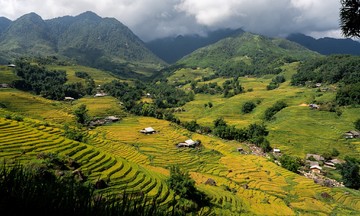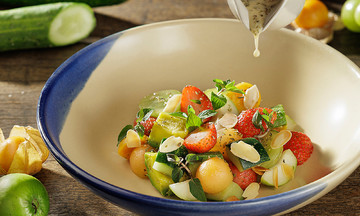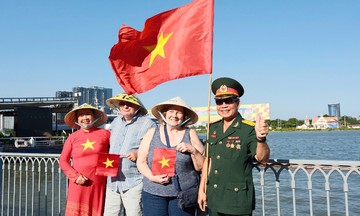Daniel Stables, a British writer specializing in culture and travel for various UK and US magazines, shared his culinary exploration of Hue in an August article for National Geographic UK. Guided by local expert Quoc Dung earlier this year, Stables discovered why the former imperial capital is considered "Vietnam's vegetarian food capital."
Once the capital of the Nguyen dynasty, Hue is experiencing a resurgence of its culinary traditions, becoming a national center for vegetarian cuisine.
"The Nguyen emperors were known for their extravagant lifestyles," Quoc Dung told Stables as they toured Hue's Imperial Citadel, with its palaces and shaded courtyards.
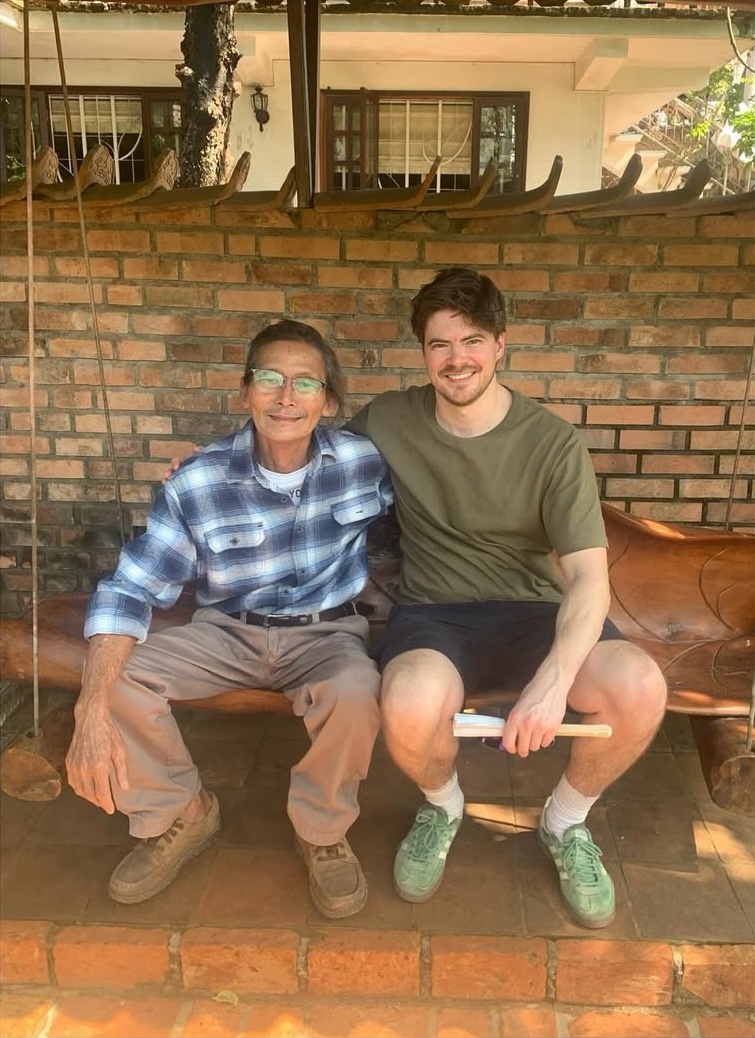 |
Daniel Stables during his trip to Hue earlier this year. Photo: Daniel Stables |
Daniel Stables during his trip to Hue earlier this year. Photo: Daniel Stables
Emperor Minh Mang (1820-1841) had 500 concubines and 142 children; Emperor Khai Dinh (1916-1925) traveled exclusively by palanquin and demanded his morning tea be brewed with dew collected from lotus leaves in the palace gardens.
"Serving the emperors was no easy task. Each meal averaged 50 dishes, requiring constant innovation from the royal chefs," Dung explained.
Despite their opulent lives, the Nguyen emperors were devout Buddhists, observing vegetarian diets on numerous religious holidays. This blend of faith and lavish living birthed a sophisticated vegetarian cuisine, considered among the finest in Vietnam and rare globally.
Today, this legacy makes Hue a prime destination for vegetarians and vegans.
"Whether Hue is Vietnam's overall food capital is debatable, but for vegetarian food, it certainly is," Quoc Dung affirmed.
As the sun set, the golden tiles of Ngo Mon Gate glowed. From the Imperial City, Dung led Stables by boat across the Perfume River to the pedestrian street. The bustling market air filled with the aromas of lemongrass, peanuts, and basil from food stalls, punctuated by the clinking of spoons and chopsticks and the sounds of diners slurping noodles.
Thanks to the Nguyen dynasty's influence, Hue remains a center of Buddhism in Vietnam. Locals often eat vegetarian meals on the 1st and 15th days of the lunar month. Stables' market visit coincided with the 1st, and restaurants citywide offered vegetarian menus. He and Dung ordered sweet jackfruit stew and banh xeo (savory crepes) filled with herbs, mushrooms, and pickled vegetables. Dung explained that locals call banh xeo "happy pancakes" because their folded shape resembles a smile.
The next morning, Dung took Stables to Dong Ba Market, explaining that Vietnamese prefer fresh market produce over supermarkets. Amidst the throngs of people, weaving motorbikes, and vendors selling from their bikes, the air mingled gasoline fumes with the pungent aroma of shrimp paste from large pots. Stalls overflowed with snails and shellfish harvested from the Perfume River.
Stables was most impressed by the abundance of fruits and vegetables: bumpy bitter melons piled high, fragrant galangal roots, lotus seeds strung like beads, and green peppercorns clustered like tiny grapes. Dung bought some green peppercorns for Stables to sample, their spicy tingle immediately apparent. Following his street food experience, Stables signed up for a cooking class, hoping to learn the secrets of Hue vegetarian cuisine. Ingredients included carrots, oyster mushrooms, dried banana flowers, lime leaves, and Hue's specialty fig fruit.
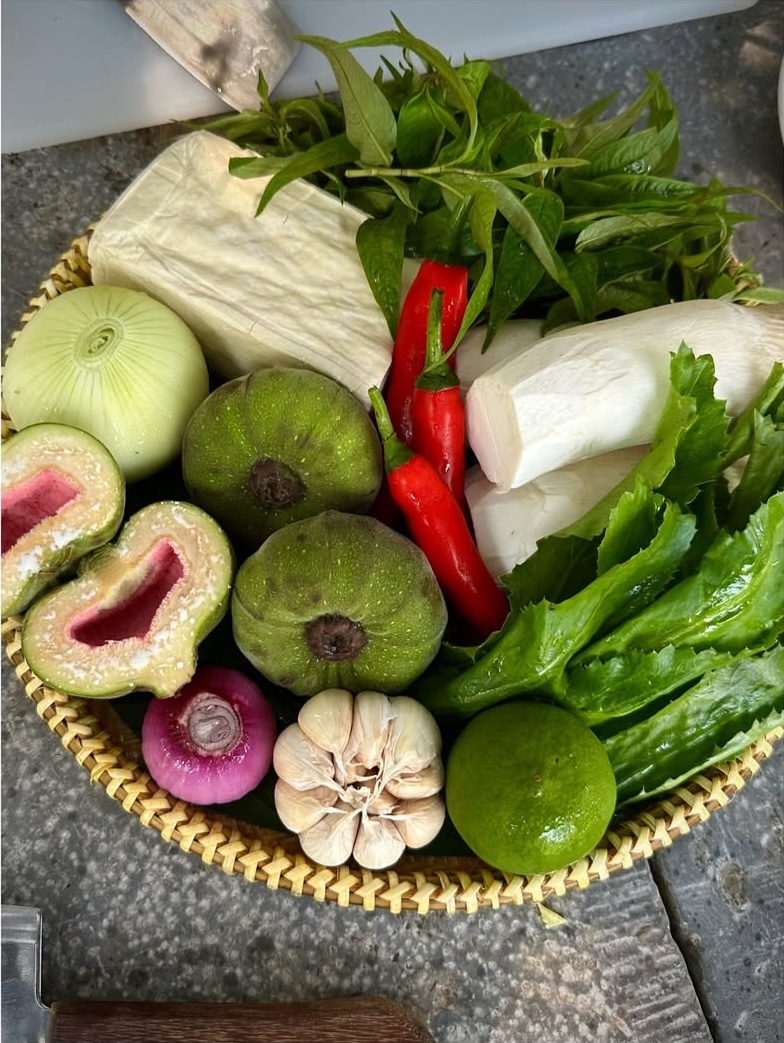 |
Ingredients for the fig salad. Photo: Daniel Stables |
Ingredients for the fig salad. Photo: Daniel Stables
The class, held at An Nhien Garden, a renowned vegetarian restaurant in Hue, used organic produce from local farms. There, Stables met Nguyen Thi Thuy Nhien, the young chef and co-founder with her sister. The restaurant is housed in the family's 16th-century home, partially renovated in 2021.
The ironwood house, with pillars carved with dragons, bats, and the ancient longevity character, opened onto a peaceful garden adorned with abstract paintings and sculptures. Participants began chopping vegetables and green figs, which oozed white sap when cut. Chef Nhien guided them in preparing fig salad, a royal vegetarian dish of figs, carrots, mushrooms, seasoned with soy sauce and a touch of fish sauce.
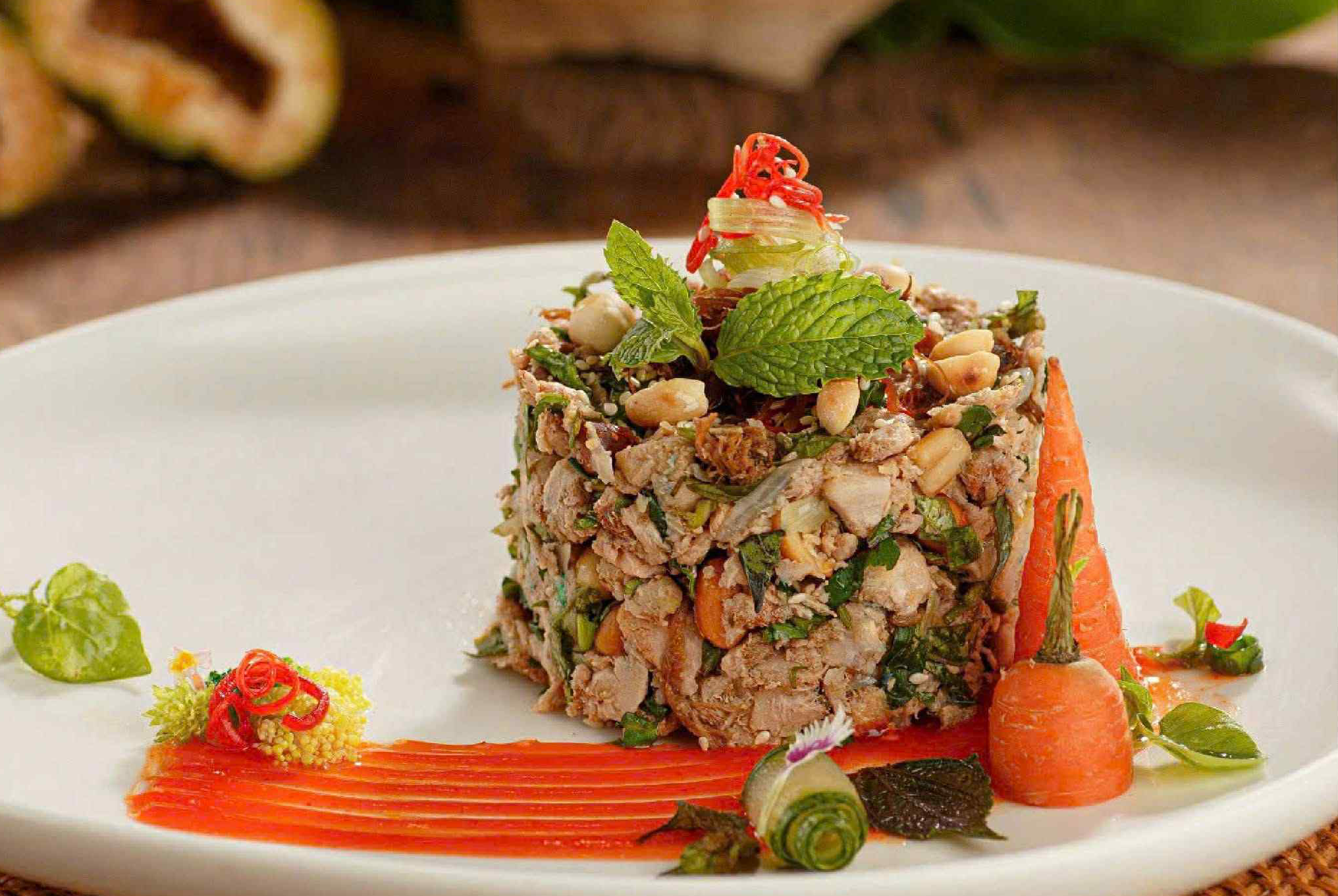 |
The vegetarian fig salad. Photo: An Nhien Garden |
The vegetarian fig salad. Photo: An Nhien Garden
The result was a refreshing salad with a nutty, almost meaty flavor, enjoyed with mandarin tea. As they ate, Nhien discussed Hue's new wave of vegetarianism, focused on health and sustainable food. "People in Hue traditionally ate vegetarian on Buddhist holidays, but before, it just meant no meat, even fast food was acceptable," she explained. "Now we want to change. We only have one body, we must cherish it every day." An Nhien, she added, is just one of many new vegetarian restaurants in Hue. Other establishments like The Garden Cafe and Hong Nga, near the Imperial Citadel, also prioritize organic, local produce to promote healthier eating habits.
"You don't have to be a lifelong vegetarian," Nhien told Stables. "Simply reducing meat consumption and adding more greens to your daily diet can improve your health."
Mai Phuong (Nat Geo)






